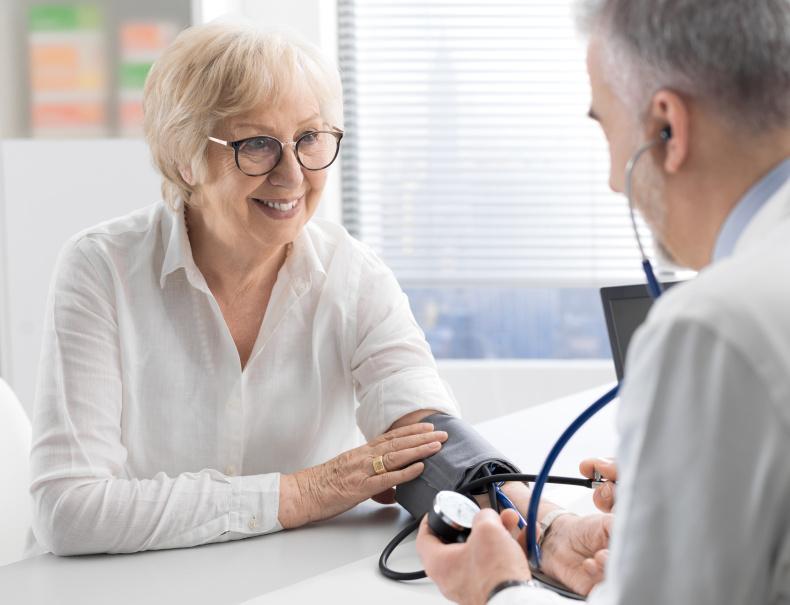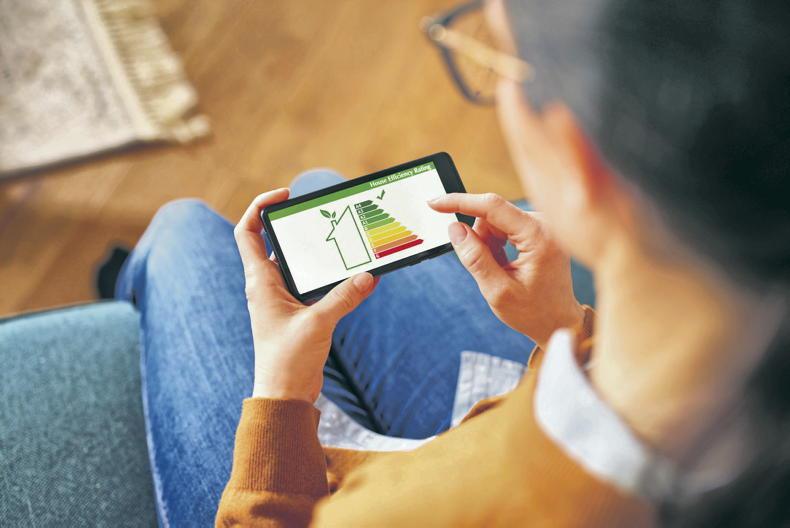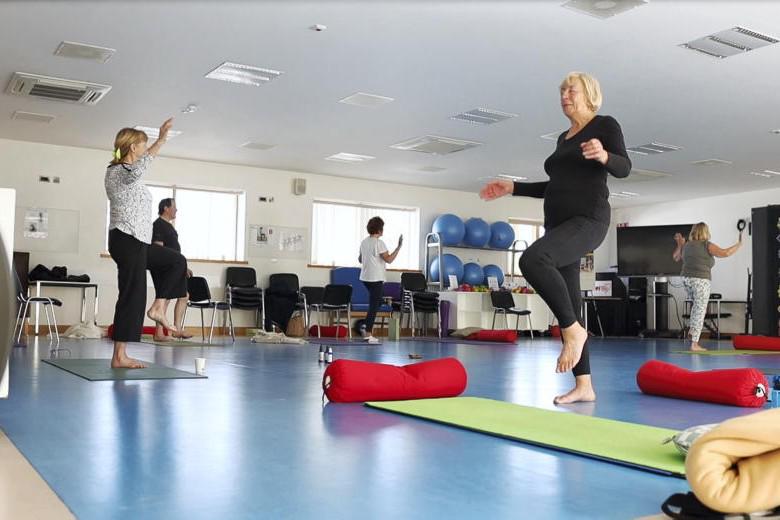It’s been an adrenalin-flowing time since COVID-19 hit and we are still coping with ongoing concerns about the virus and getting back to work and school. Throw in the normal physical and mental challenges of everyday life and health can sometimes be compromised.
The post-harvest lull can be a good time to schedule a check-up and what better gift to give yourself than nipping medical problems in the bud before they develop into something more serious? What will it cost you though? Where should you go? We look at the range available.
€0-€50
Pharmacy first
If you don’t want to go to a GP you can get a health check done in many pharmacies now. These include weight check and waist measurement, blood pressure check, blood glucose and cholesterol test and you can also have your risk of diabetes type 2 assessed and get general advice about a healthy lifestyle. The cost is usually €40-50 and pharmacists can help by developing a tailor-made health improvement plan for you.
You will, of course, be referred to your GP if your blood glucose level is high, for example, or if your blood pressure and cholesterol levels are above the normal range.
You will need to make an appointment with your pharmacist for a health check and fast for 12 hours before the test in order to get an accurate blood glucose and cholesterol reading.
Some pharmacists now offer more tests including urine analysis (for urinary tract infections) and full sexual health screening tests. Check with pharmacies for prices.
€50-€100
GP option
Having a check-up with your GP can vary in price from practice to practice but cost can also depend on whether or not referral letters are needed for consultants following the check-up. A suite of blood tests is usually done based on the doctor’s clinical opinion and knowledge of you, the patient. The advantage is that your GP knows you, your health and family history.
€500+
The full suite
Many private hospitals like the Mater, Beacon and Bon Secours as well as private medical insurance companies like LAYA, IrishLife Health and VHI offer comprehensive screening tests.
Contacted by Irish Country Living some hospitals said these types of tests may not resume again until September or October due to COVID-19 delays, but check out their websites for recommencement dates.
Free screening tests
Don’t forget that some free screening takes place in Ireland. For women there is BreastCheck and CervicalCheck and for women and men between the ages of 60-69 BowelScreen is available. See www.screeningservice.ie
If you haven’t received an invitation for bowel screening call Freephone 1800 45 45 55 to check if you’re on the register, or to add your details.
Other check-ups
Don’t forget that eyes, ears and teeth need check-ups too and that if you have the required number of PRSI contributions (PAYE and self-employed), you can get dental and eye check-up costs covered under the Treatment Benefit Scheme.
Under the Treatment Benefit Scheme, you may qualify for:
Dental benefit.Optical benefit.Hearing aids.You should contact your treatment provider to check your eligibility before proceeding with any treatment.
Monitoring
Regular check-ups are advised for monitoring and appropriate management of established medical problems such as high blood pressure, asthma, COPD, heart failure, kidney disease and some other chronic medical conditions. It is advisable for patients who are suffering from long-term medical illnesses to visit their GP every six months approximately. More frequent visits and blood tests are necessary for those with underlying conditions like rheumatoid arthritis and poorly controlled diabetes mellitus.
What age should you start?
There is no one single age at which a person should attend for a medical check-up.
It is multifactorial. It depends on underlying factors such as adverse family history, personal health factors, lifestyle and other factors.
Fee
The fee that the doctor or institution charges for examinations and investigations depends upon the number and complexity of tests performed. Again, one size does not fit all.
Comment:
‘GP services not yet back to full capacity’
Medical director of the Irish College of General Practitioners (ICGP) Dr Tony Cox told Irish Country Living:
“A lot of routine, non-emergency care was deferred due to the preparations for the anticipated wave of COVID-19 infection in March and April. Thankfully this surge was suppressed by the public health measures advised by the Government, but services have been slow to resume and get back up to full capacity.
“Indeed, some services will not be able to function at full capacity whilst COVID-19 infection is with us, due to the extra infection prevention and control measures required, and the need to ensure safety. General practice has remained open throughout the pandemic but capacity and staffing and adequate PPE supply remains a constant concern.”
Pharmacy and other screening
services – ICGP opinion
The screening services provided by some pharmacies and private hospitals may be acceptable as long as they are timely, appropriate, and focused upon specific patient symptoms and needs, are warranted, not unduly invasive and expensive and yet are clinically necessary.
If these criteria are fulfilled, then these tests are likely to be of benefit to the individual patient for whom they were performed.
Not possible to test for every illness
“The efficacy of unstructured and poorly focused medical check-ups is a matter for debate,” says Dr Tony Cox.
“There is no one single test or investigation that will check for every illness or that will unearth every hidden cancer. A patient who requests a full check-up does so in the expectation that every illness and every cancer will be screened for and detected. This is not possible and no doctor can promise such a comprehensive medical check-up.
“Medical check-ups are reasonable where the patient has a particular medical symptom or complaint that requires investigation. Similarly, factors in a patient’s family history or past medical history may trigger a focused medical check-up.
“Patient lifestyle factors such as smoking, excessive alcohol intake, obesity, poor diet and exercise patterns also may trigger the need for a comprehensive and focused medical check-up.”
One pharmacist’s approach
Current Community Pharmacist of the Year Jonathon Morrissey is based at Marron’s Pharmacy in Clane, Co Kildare, and believes that pharmacies are one of the best ways to community triage people.
He personally has referred “a fairly full notebook” of people to their doctors after screening tests showed that they had elevated blood pressure (hypertension), blood glucose or cholesterol levels.
“If your pharmacist is competent he or she can direct people the right way and that is really good for the health service,” Jonathon says. “It can help keep them out of the GP surgery if they don’t need to go, freeing up an appointment for someone with more need. Pharmacies vary but many are now very active in screening services and disease management.”
Jonathon’s experience of discovering that he had high blood pressure himself at the age of 28 made him realise that there may be plenty others like him.
“I was someone who wasn’t on the radar of my GP. My experience made me conscious that there is a cohort of (younger) people who may have disease risk that they don’t even realise. The only way to find these things is to screen for them.”
Many pharmacies offer free blood pressure checks to anyone who walks in, he says.
“One in five ‘walk-in’ tests would show hypertension. In our case we also now offer a free two-finger ECG as well so we are now screening for serious arrhythmias in patients as well. We’ve found that about 7% of all people we tested had atrial fibrillation (irregular heart beat) which is the number-one cause of stroke so it’s very powerful what can be done with this non-invasive test.”
Unfortunate ‘Badges of Honour’
Jonathon thinks that Irish people hold two (unfortunate) badges of honour close to their hearts.
“The first is that they love to say ‘I never go to the doctor’ as if that is something to be proud of. Unfortunately all it means is that you don’t pick up on any problem before it’s too late.
“The second is ‘I’m not on any meds’. It’s great to be able to say but if you have an underlying disease that needs to be treated, that badge of honour will catch up with you in a negative sense. The big thing to remember is that cardiac illnesses are silent killers and therefore you should have regular screening checks as over 90% of people don’t have any symptoms with hypertension.”
Pharmacists have to refer elevated results on to GPs.
“That’s the role of the pharmacist,” he says. “They will refer patients as per Irish Heart Foundation guidelines. Really it’s over to the GP then to confirm or complete the diagnosis and decide on treatment.”
As well as all the tests listed above, some pharmacies also now provide a 24-hour BP monitor service, the gold standard for diagnosing hypertension.
Tax relief on health expenses
Don’t forget that you can get tax relief on medical expenses. The old Med 1
form is no longer available according to Revenue but you can claim health
expenses through your tax return form. See Revenue.ie
Read more
School preparation in a COVID year
Text neck? What to do to stop it being a pain
It’s been an adrenalin-flowing time since COVID-19 hit and we are still coping with ongoing concerns about the virus and getting back to work and school. Throw in the normal physical and mental challenges of everyday life and health can sometimes be compromised.
The post-harvest lull can be a good time to schedule a check-up and what better gift to give yourself than nipping medical problems in the bud before they develop into something more serious? What will it cost you though? Where should you go? We look at the range available.
€0-€50
Pharmacy first
If you don’t want to go to a GP you can get a health check done in many pharmacies now. These include weight check and waist measurement, blood pressure check, blood glucose and cholesterol test and you can also have your risk of diabetes type 2 assessed and get general advice about a healthy lifestyle. The cost is usually €40-50 and pharmacists can help by developing a tailor-made health improvement plan for you.
You will, of course, be referred to your GP if your blood glucose level is high, for example, or if your blood pressure and cholesterol levels are above the normal range.
You will need to make an appointment with your pharmacist for a health check and fast for 12 hours before the test in order to get an accurate blood glucose and cholesterol reading.
Some pharmacists now offer more tests including urine analysis (for urinary tract infections) and full sexual health screening tests. Check with pharmacies for prices.
€50-€100
GP option
Having a check-up with your GP can vary in price from practice to practice but cost can also depend on whether or not referral letters are needed for consultants following the check-up. A suite of blood tests is usually done based on the doctor’s clinical opinion and knowledge of you, the patient. The advantage is that your GP knows you, your health and family history.
€500+
The full suite
Many private hospitals like the Mater, Beacon and Bon Secours as well as private medical insurance companies like LAYA, IrishLife Health and VHI offer comprehensive screening tests.
Contacted by Irish Country Living some hospitals said these types of tests may not resume again until September or October due to COVID-19 delays, but check out their websites for recommencement dates.
Free screening tests
Don’t forget that some free screening takes place in Ireland. For women there is BreastCheck and CervicalCheck and for women and men between the ages of 60-69 BowelScreen is available. See www.screeningservice.ie
If you haven’t received an invitation for bowel screening call Freephone 1800 45 45 55 to check if you’re on the register, or to add your details.
Other check-ups
Don’t forget that eyes, ears and teeth need check-ups too and that if you have the required number of PRSI contributions (PAYE and self-employed), you can get dental and eye check-up costs covered under the Treatment Benefit Scheme.
Under the Treatment Benefit Scheme, you may qualify for:
Dental benefit.Optical benefit.Hearing aids.You should contact your treatment provider to check your eligibility before proceeding with any treatment.
Monitoring
Regular check-ups are advised for monitoring and appropriate management of established medical problems such as high blood pressure, asthma, COPD, heart failure, kidney disease and some other chronic medical conditions. It is advisable for patients who are suffering from long-term medical illnesses to visit their GP every six months approximately. More frequent visits and blood tests are necessary for those with underlying conditions like rheumatoid arthritis and poorly controlled diabetes mellitus.
What age should you start?
There is no one single age at which a person should attend for a medical check-up.
It is multifactorial. It depends on underlying factors such as adverse family history, personal health factors, lifestyle and other factors.
Fee
The fee that the doctor or institution charges for examinations and investigations depends upon the number and complexity of tests performed. Again, one size does not fit all.
Comment:
‘GP services not yet back to full capacity’
Medical director of the Irish College of General Practitioners (ICGP) Dr Tony Cox told Irish Country Living:
“A lot of routine, non-emergency care was deferred due to the preparations for the anticipated wave of COVID-19 infection in March and April. Thankfully this surge was suppressed by the public health measures advised by the Government, but services have been slow to resume and get back up to full capacity.
“Indeed, some services will not be able to function at full capacity whilst COVID-19 infection is with us, due to the extra infection prevention and control measures required, and the need to ensure safety. General practice has remained open throughout the pandemic but capacity and staffing and adequate PPE supply remains a constant concern.”
Pharmacy and other screening
services – ICGP opinion
The screening services provided by some pharmacies and private hospitals may be acceptable as long as they are timely, appropriate, and focused upon specific patient symptoms and needs, are warranted, not unduly invasive and expensive and yet are clinically necessary.
If these criteria are fulfilled, then these tests are likely to be of benefit to the individual patient for whom they were performed.
Not possible to test for every illness
“The efficacy of unstructured and poorly focused medical check-ups is a matter for debate,” says Dr Tony Cox.
“There is no one single test or investigation that will check for every illness or that will unearth every hidden cancer. A patient who requests a full check-up does so in the expectation that every illness and every cancer will be screened for and detected. This is not possible and no doctor can promise such a comprehensive medical check-up.
“Medical check-ups are reasonable where the patient has a particular medical symptom or complaint that requires investigation. Similarly, factors in a patient’s family history or past medical history may trigger a focused medical check-up.
“Patient lifestyle factors such as smoking, excessive alcohol intake, obesity, poor diet and exercise patterns also may trigger the need for a comprehensive and focused medical check-up.”
One pharmacist’s approach
Current Community Pharmacist of the Year Jonathon Morrissey is based at Marron’s Pharmacy in Clane, Co Kildare, and believes that pharmacies are one of the best ways to community triage people.
He personally has referred “a fairly full notebook” of people to their doctors after screening tests showed that they had elevated blood pressure (hypertension), blood glucose or cholesterol levels.
“If your pharmacist is competent he or she can direct people the right way and that is really good for the health service,” Jonathon says. “It can help keep them out of the GP surgery if they don’t need to go, freeing up an appointment for someone with more need. Pharmacies vary but many are now very active in screening services and disease management.”
Jonathon’s experience of discovering that he had high blood pressure himself at the age of 28 made him realise that there may be plenty others like him.
“I was someone who wasn’t on the radar of my GP. My experience made me conscious that there is a cohort of (younger) people who may have disease risk that they don’t even realise. The only way to find these things is to screen for them.”
Many pharmacies offer free blood pressure checks to anyone who walks in, he says.
“One in five ‘walk-in’ tests would show hypertension. In our case we also now offer a free two-finger ECG as well so we are now screening for serious arrhythmias in patients as well. We’ve found that about 7% of all people we tested had atrial fibrillation (irregular heart beat) which is the number-one cause of stroke so it’s very powerful what can be done with this non-invasive test.”
Unfortunate ‘Badges of Honour’
Jonathon thinks that Irish people hold two (unfortunate) badges of honour close to their hearts.
“The first is that they love to say ‘I never go to the doctor’ as if that is something to be proud of. Unfortunately all it means is that you don’t pick up on any problem before it’s too late.
“The second is ‘I’m not on any meds’. It’s great to be able to say but if you have an underlying disease that needs to be treated, that badge of honour will catch up with you in a negative sense. The big thing to remember is that cardiac illnesses are silent killers and therefore you should have regular screening checks as over 90% of people don’t have any symptoms with hypertension.”
Pharmacists have to refer elevated results on to GPs.
“That’s the role of the pharmacist,” he says. “They will refer patients as per Irish Heart Foundation guidelines. Really it’s over to the GP then to confirm or complete the diagnosis and decide on treatment.”
As well as all the tests listed above, some pharmacies also now provide a 24-hour BP monitor service, the gold standard for diagnosing hypertension.
Tax relief on health expenses
Don’t forget that you can get tax relief on medical expenses. The old Med 1
form is no longer available according to Revenue but you can claim health
expenses through your tax return form. See Revenue.ie
Read more
School preparation in a COVID year
Text neck? What to do to stop it being a pain









SHARING OPTIONS